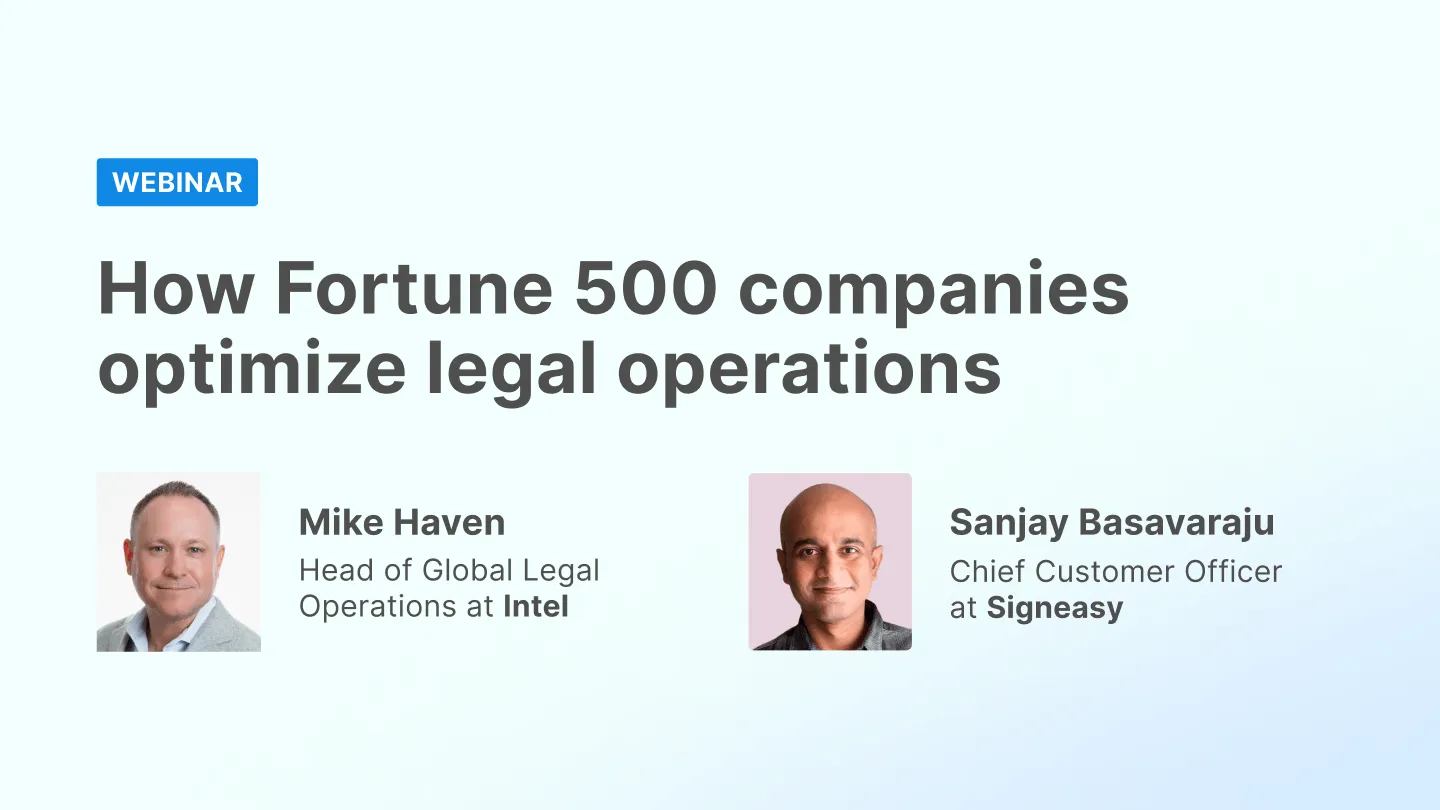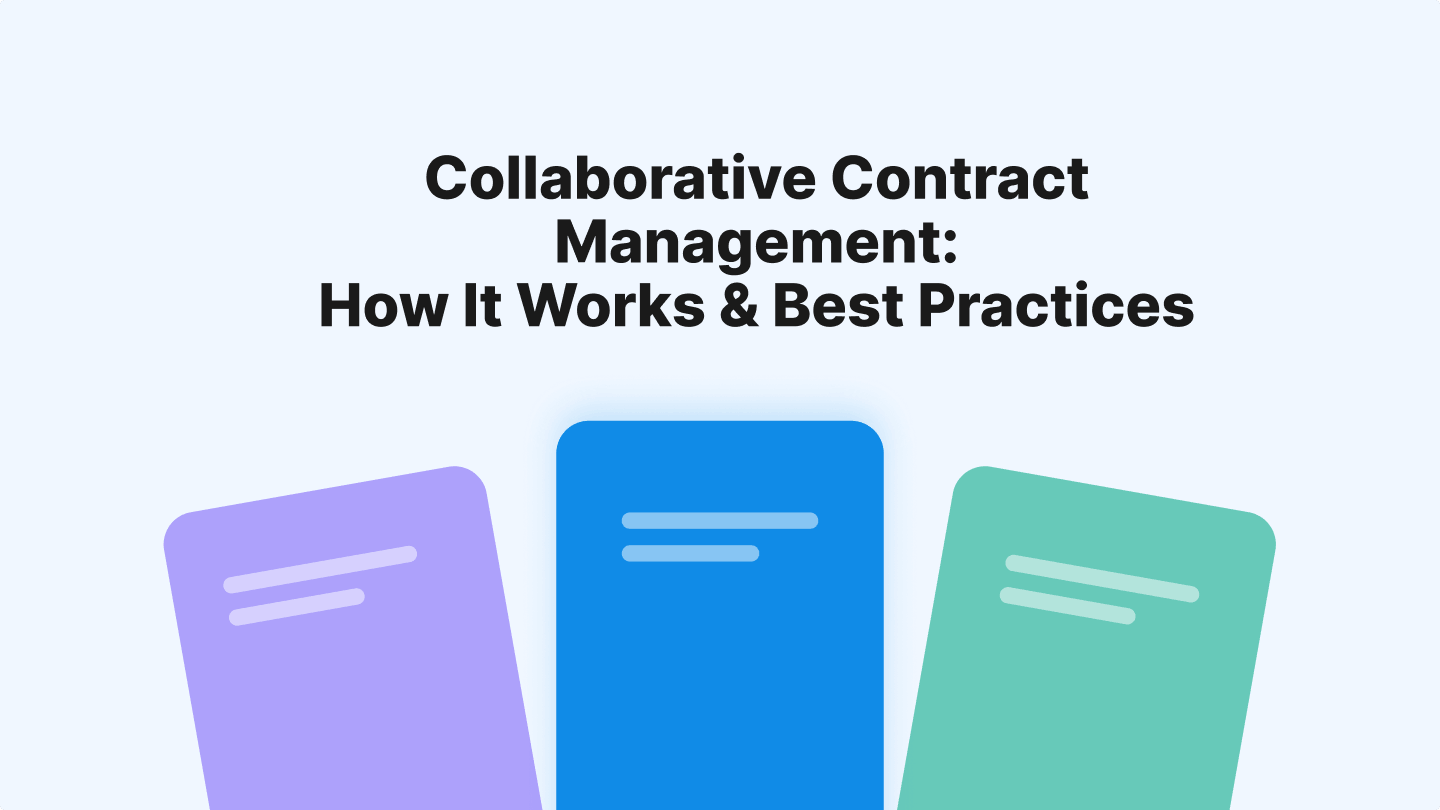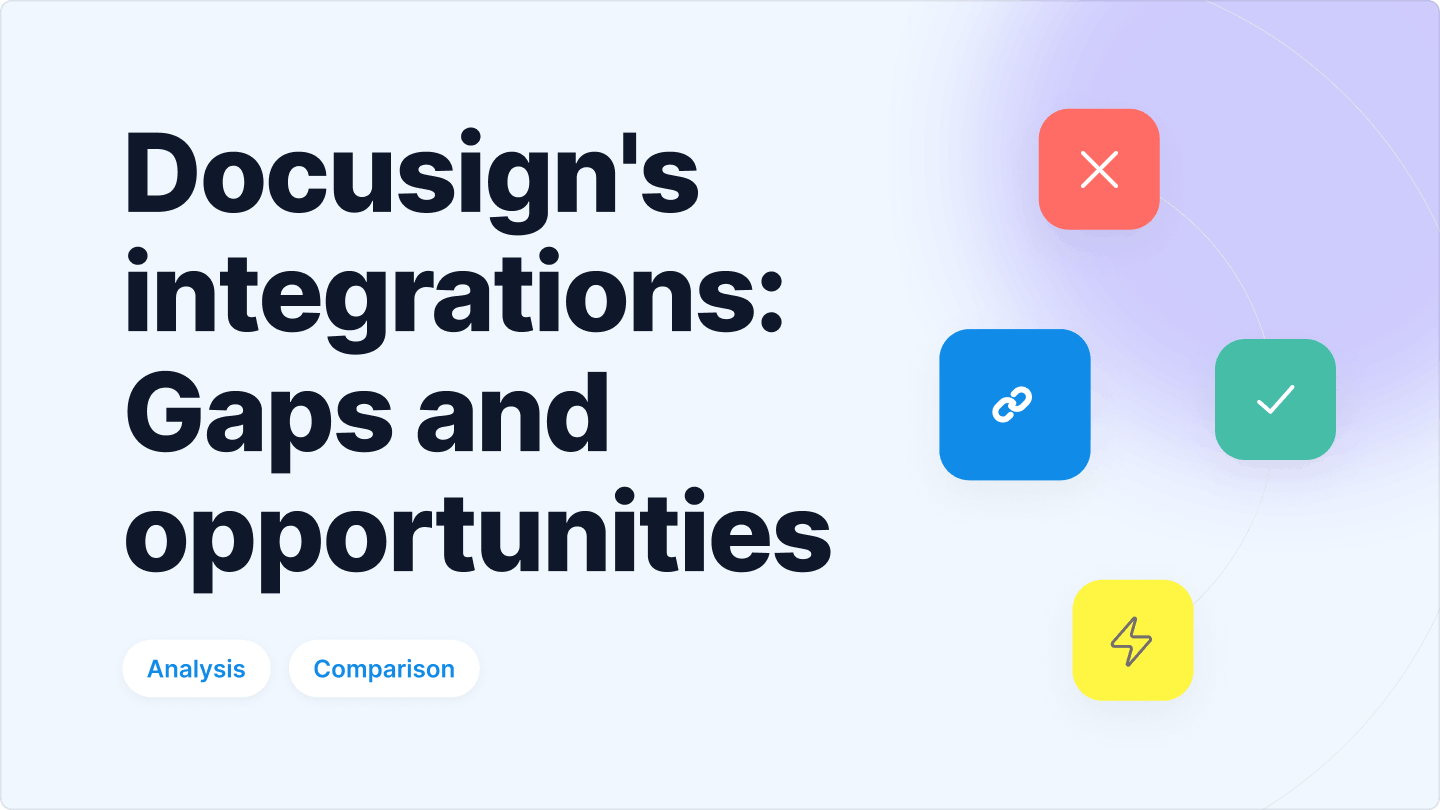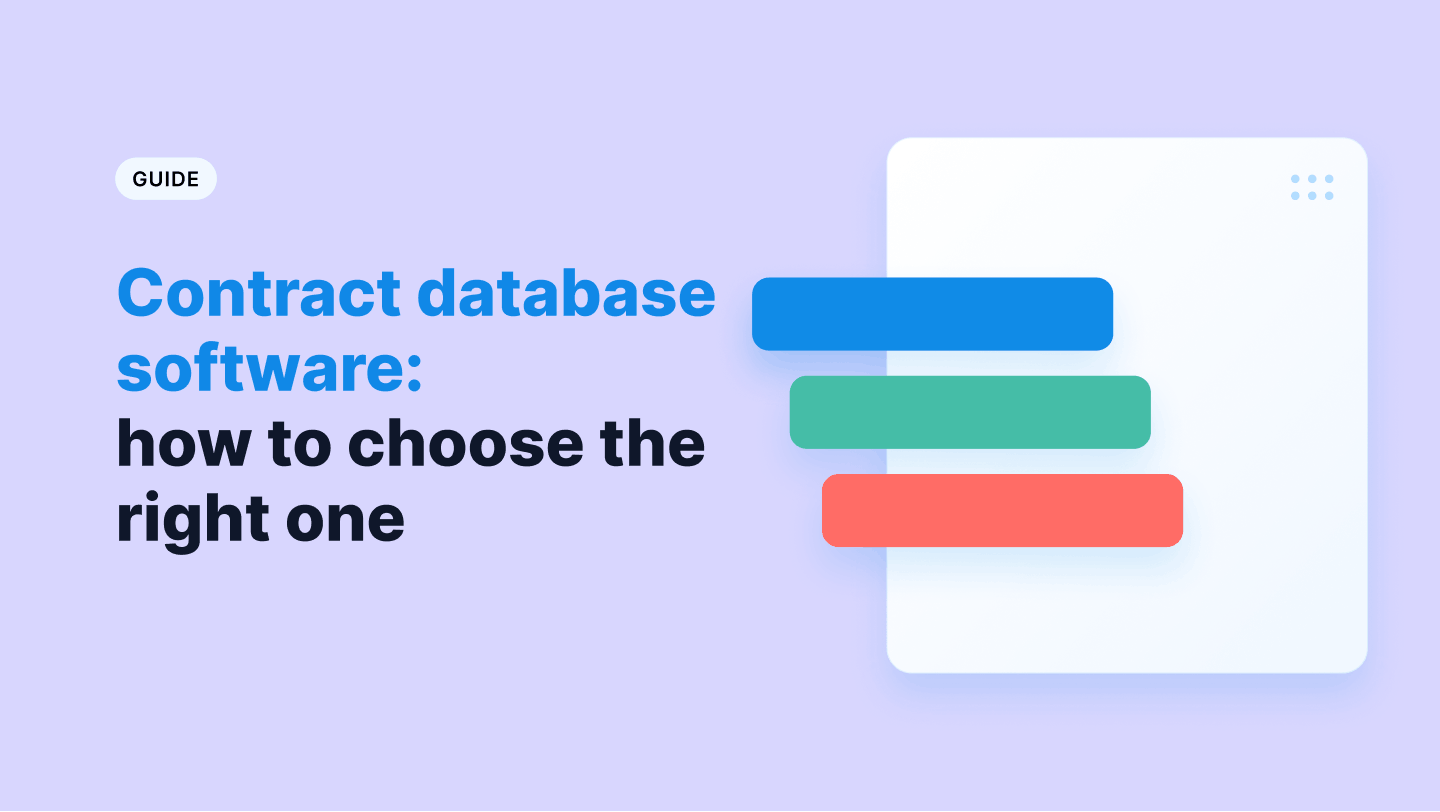Legal operations teams face a number of challenges when it comes to integrating advanced technologies into existing workflows and ensuring seamless adoption and effective use by staff.
Managing data quality, accuracy, and security while complying with privacy regulations adds more complexity to an already complex workflow. To add to it, budget constraints often limit the ability to invest in necessary tools and resources.
Attracting and retaining skilled professionals who possess both legal and technical expertise is another significant hurdle. Balancing these demands while striving to enhance efficiency and reduce costs presents a continual challenge for legal operations teams.
I spoke with Mike Haven, now Global Head of Legal Operations at Meta, ex Intel, to learn more about the evolution, challenges, and future of legal operations and technology.
Previously, Mike held a similar role at Intel, where he was the Associate General Counsel and Global Head of Legal Operations. He has a distinguished career in legal operations, notably serving as the president of the Corporate Legal Operations Consortium (CLOC), a leading organization dedicated to advancing legal operations practices. Mike’s contributions to the field include co-authoring "Gen O: The Rise of Legal Operations," focusing on essential skills for legal operations professionals.
Read on to learn more from our engaging discussion. If you prefer watching the video, click on this link to access the webinar recording.
Key takeaways
- Legal operations require a multidisciplinary approach, including knowledge of law, finance, procurement, IT, and technology.
- Investment and advancements in legal technology have accelerated, making tools like CLM (Contract Lifecycle Management) highly effective.
- Technology, such as AI and automation, can significantly enhance legal operations once good processes are established.
- Generative AI has revolutionized how legal professionals approach their work, making processes more efficient and enjoyable.
- The legal operations community is growing, with an emphasis on education and continuous learning.
- New entrants in legal operations need to understand both hard knowledge and soft skills.
- Companies exploring legal tech should begin with basic technology implementations and gradually adopt more advanced solutions, making use of the experiences of those who have built similar programs.
Q1: How did legal ops become part of your career? You have a significant legal background, so some context would help us understand what fascinates you about legal ops, CLM, and data.
Mike Haven: I was a law firm partner back in 2012, with a practice that combined IP and employment litigation, focusing on trade secrets litigation. It was a fun niche, and I enjoyed it.
However, around that time, there was a movement emerging in the in-house world regarding law department management and improving processes. The legal industry had been stuck in the dark ages for a long time and needed a lot of improvement and discipline. I was fascinated by a small group of people starting to address this need and saw a significant opportunity.
Eventually, I decided to move in-house, managing litigation and exploring this new, evolving field of legal operations. I fell in love with the work. It's an interesting and important way to make a living because the legal industry needs change. We're here to drive that change both on a macro level and within our organizations. It’s a very satisfying career.
Q2: Could you tell us more about the "dark ages" you mentioned? What was it like to handle so many contracts without the assistance of technology or a growing community of legal operations when you started out?
Mike Haven: Think about communication back in those days. When I first started practicing, you would literally pick up the landline telephone, dial someone, and call them. If they weren't there, you'd leave a voicemail and wait for them to call you back. If you needed to send someone a letter urgently, you'd use a fax machine. We don't do those things anymore. Today, when we call people, we typically use mobile devices. When we need to send something, we use email or even better tools.
Now, let's translate this to how a contract gets done. Imagine sending a contract to the other side for review. Email came along early in my career, but initially, people weren't using it. So, you'd send a contract via fax. The other party would go through the contract with a red pen, make their changes, and fax it back to you. Think about how much time that would take.
In contrast, today’s process is much faster and more efficient. We've come a long way in the past 20-25 years. With the advent of legal technology and the rise of legal operations, the way we manage contracts and legal processes has fundamentally transformed.
This evolution has made the practice of law much more streamlined and efficient, significantly reducing the time and effort required to handle legal matters.
Q3: Why do we need people from diverse backgrounds in legal ops? What have we gained from this diversity, and what do we still need to learn?
Mike Haven: There’s a lot to unpack there. The thing about legal ops is that it requires a multitude of disciplines. You need an understanding of the legal environment, finance, procurement, IT, and technology. Legal operations encompass many disciplines, and no one enters the field with expertise in all of them.
Typically, you might come into the field with two of those disciplines. If you’re fortunate, maybe you have three. But there’s a lot to learn on the job. The most important characteristic I look for in a legal operations professional is a growth mindset—curiosity, a willingness to learn, and a thirst for knowledge.
Someone might come into the role with expertise in a couple of areas, but they need to quickly pick up the many other disciplines that the role requires. This diversity in background brings richness to the field, allowing for innovative solutions and approaches. The varied expertise contributes to a more comprehensive and effective legal operations strategy, ultimately benefiting the entire organization.
Q4: When did you feel that legal ops was ready for CLM? When did you realize both were at a stage where we could derive significant value from these developments?
Mike Haven: The relationship between legal ops and technology reminds me of the classic chicken and egg dilemma—it's difficult to determine which came first. When legal ops started gaining traction, technology was still in its nascent stages. However, as the field of legal operations grew, it significantly accelerated the development of legal technology.
Conversely, technology has enhanced the role of legal ops, making it invaluable in organizations today. They are symbiotic and essential elements of the legal ecosystem we're living in right now.
I recall about 10-12 years ago, CLM technology was not very great. We struggled to make it work well because we knew it would be valuable, but it wasn't quite there yet. Over the last 10 years, the development and evolution of the CLM space have been incredible.
Today, CLM technology significantly impacts top-line revenue by closing deals faster and enabling companies to generate more income. This measurable, direct impact highlights the crucial role of legal ops in driving business success.
I emphasize this value to my team all the time, showing how advancements in CLM technology and the strategic role of legal ops contribute to our growth and efficiency.
Q5: How do you find the balance between a sense of control and the decentralization of workflows? What do you think is the key motivator for a legal ops team? At a high level, what is the legal ops team trying to achieve in a big corporation?
Mike Haven: We're all trying to do the same thing, and that is to drive value for our shareholders. Ultimately, that's what it comes down to. It's critical that the vision, mission, and goals of the legal ops team align with those of the legal organization, which in turn should support the company's overall vision, mission, and goals. All these elements need to fit together seamlessly.
Legal ops teams must understand how their daily work positively impacts the company. It's the leader's responsibility to draw those connections clearly.
For example, your work enables the legal team to function more efficiently, which in turn supports the company's broader objectives. It's essential to communicate this impact because people are mission-driven—they want to know that their work is meaningful and important.
Tying these goals together is crucial. When team members see how their efforts contribute to the company's success, it fosters a sense of purpose and motivation. This alignment not only enhances the efficiency and effectiveness of the legal ops team but also reinforces the value they bring to the organization.
Q6: How does a legal ops team decide that it’s ready to embrace tech and that it needs tech to support, assist, or guide it?
Mike Haven: Technology always serves a crucial role by automating processes.
However, before moving to automation, it’s essential to ensure that you have the right process in place. The process needs to be tight, not wasteful, and as efficient as possible. Once you have a solid process, layering automation on top can create remarkable results. This is key to achieving true efficiency and effectiveness.
I have to credit Steve Harmon for an analogy that I still use because it makes a ton of sense: buying a new set of golf clubs won’t fix my swing or make me a good golfer. I need to have a good swing first, and then the new clubs can enhance my performance by making the ball go farther when I hit it correctly. Without a good swing, the clubs are useless.
Similarly, in legal ops, we must ensure our processes are well-defined and efficient. Once we have that foundation, we can layer technology on top and achieve incredible outcomes. The technology available today can do amazing things, but its effectiveness depends on having solid processes in place first. This approach ensures that when we automate, we’re enhancing an already efficient system, leading to even greater improvements in our operations.
Q7: What's it been like for you personally to scale companies with tech and adopt legal tech early on? How have AI, data, and more teams collaborating in a big corporation changed things for the better?
Mike Haven: My experience has been amazing. I have never seen anything like what I've witnessed in the last two years. Lawyers are enthusiastic and excited about processes and technology. The release of ChatGPT in November 2022 instigated a sort of revolution among lawyers in our organization. They are now suddenly very excited about finding use cases for generative AI and building solutions that make their work more efficient.
It's quite remarkable because, traditionally, lawyers haven't been known for their eagerness to adopt new technology. Over the past 10 years, they started using more technology, and they're slowly getting better at it. But I've never seen this level of enthusiasm and excitement to go out and automate a process. Generative AI has sparked that excitement, and it's been my experience that everyone wants to play with it.
Q8: What's fascinating to you when you meet your fellow folks, maybe those you've worked with before a decade ago? What do they say about technology catching up with them?
Mike Haven: It's just that they think it's so cool what can be done with technology now. For many people, they see what they can do at home with this technology. For instance, you can take a picture of the contents of your refrigerator, put that picture into GPT-4, and it will give you recipes you can make with the food that's left in your refrigerator. Seeing such practical applications at home makes them wonder how this technology can translate to work.
They start thinking about what they can do at work to make their lives easier. They want to cut some of the tedious stuff out of their day and make work more enjoyable with an AI assistant. People are curious and excited about how they can implement similar technologies to streamline their tasks and enhance productivity.
Q9: Where do you see the world, especially the contract, the legal tech, and the legal ops, going in the next two to three years? What else have we yet to solve for legal ops and workflows?
Mike Haven: The utilization of people resources and using AI to allocate work in a thoughtful, meaningful way based on bandwidth is a big area of focus. I think intake processes will be a significant area of improvement. We're going to figure out how to manage those much better.
One major change is that data can now be held in a repository, and AI can go to work with it. I believe that structured data will become less and less important over time. Currently, it's crucial that our data is structured and clean for AI to reference it. But I think that will change as AI becomes capable of structuring the data for us. Having structured data from the beginning won't be as important in the future.
These are just predictions, of course, but we'll likely be able to put all of our data in one place and let the AI handle it. We may not need to separate contracts from other documents or anything else. The AI could go in and take care of all of that for us.
That would be interesting because it means organizations could be organized, which is rarely the case now. This level of automation and efficiency could fundamentally change how we manage legal ops and workflows, making our processes more streamlined and effective.
Q10: What else fascinates you about the community that's coming up? How do we ensure this community remains active, curious, and continues learning? Also, when you work with new people entering the organization, what challenges do you see them facing right now?
Mike Haven: It's really the younger generations coming up. You think about the differences between the generations, and there are a lot of good things that the younger generations bring to the table. For example, they know really well how to write prompts in large language models, whereas some of the older or more experienced people might not have that capability. At the same time, the younger generations work differently. They expect more flexibility in their days.
So it's really about making sure that we are keeping in mind the differences in the generations and the cultures that come in. We need to ensure we're offering education and opportunities to learn in this field to everyone, regardless of their background or generation.
It's important that we're providing them the opportunity to learn the full spectrum of what they need to be successful in this field, whether that is hard knowledge on a certain subject or soft skills that are also very important.
I will make a quick plug for a book that Prashant Dubey and I just released called "Gen O: The Rise of Legal Operations." We talk a lot about the soft skills in that book that are really important.
Q11: What do Fortune 500 companies have in common in terms of processes relating to legal operations?
Mike Haven: We typically use a lot of law firms, so outside counsel management processes are critical in most Fortune 500 companies. We leverage e-billing and matter management software to stay on top of managing those outside counsel matters.
Additionally, most Fortune 500 companies handle a lot of contracts. We use CLM technology to help us store, create, and negotiate all of our agreements. We automate as much of that as we can through workflow automation technology. Some organizations use a fragmented solution, but we prefer leveraging the robust workflow functionality within our CLM tool.
In any good legal operations program, you should also leverage data visualization technology. This helps report metrics and analytics to leaders and teams, enabling them to make informed, data-driven decisions.
Those are some of the big ones. Of course, there are other aspects, but these are key. You should see our technology map; there are a lot of different things going on.
Q12: What advice do you have for companies that are just starting to explore legal tech?
Mike Haven: Start by talking to people who have done this before, those who have built out programs in organizations. You don't want to boil the ocean; trying to do everything at once can be overwhelming. Technology implementations can be hard and require a lot of work.
Make a strategic plan for what technology you want to adopt first, second, and third. Align with your organization on that plan. It's essential to have everyone on the same page.
Then, just get started. Begin by implementing the most basic technology. Whether you want to start with e-billing or contract management, just start. The key is to take that first step because the benefits will compound over time. You'll begin to see the fruits of your labor and the ROI in automating your processes.
Q13: How do companies handle the increasing complexity of global legal operations and foster a culture of continuous improvement within their legal departments? What are some of the complexities that you're handling?
Mike Haven: There are different rules and different ways you need to approach things in different parts of the world. So it does add a layer of complexity. But for me, it’s really about ensuring that my high-level vision, mission, and the priorities required to achieve that vision are set in stone. The team needs to understand them, and we need to have a clear roadmap.
Whether you’re just starting out or going global, you need to have that roadmap so it can serve as a frame of reference all along the way. Without that, the complexity will probably get the best of you, and you’ll become overwhelmed.
For example, if we’re rolling out our program in EMEA, we need to address specific considerations for that region. That’s all part of the roadmap and the next phase. Everyone understands the plan, and we stick to it. It’s really about planning, prioritizing, and sticking to your plan.












